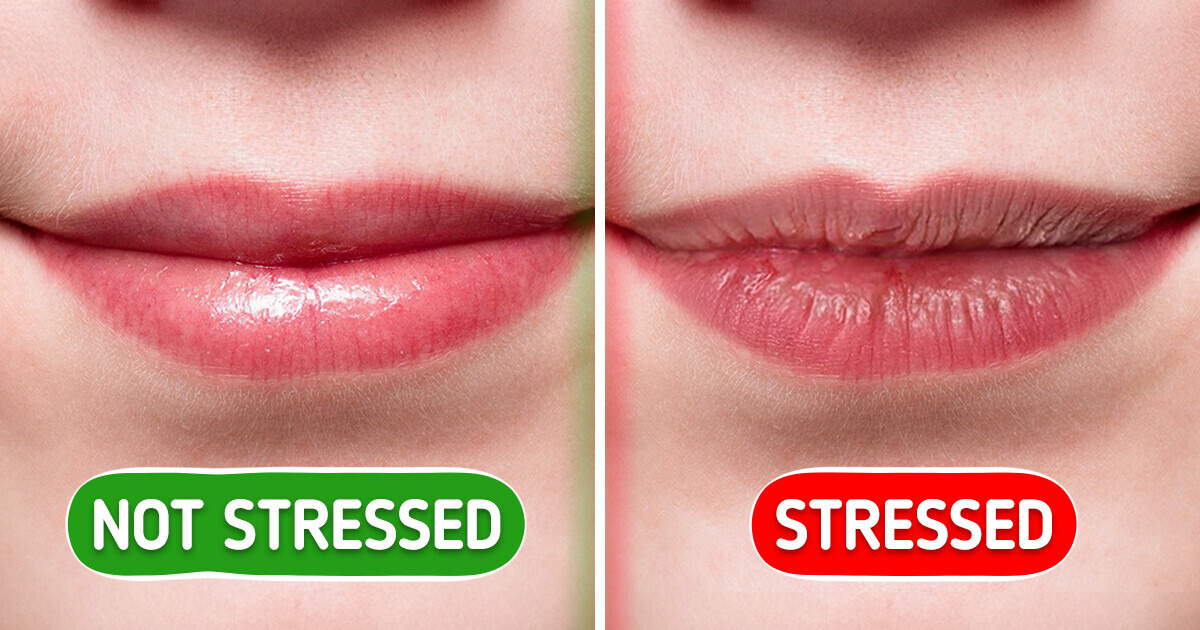I Forgave My Ex for Cheating, but He Ruined Everything Again


Stress is part of almost everyone's life, unfortunately, it's hard to avoid it in this modern world, which constantly changes and requires our attention. Our body can send signals to warn us if our stress level is too high. So if you experience any of these symptoms, don't ignore them, check them out with a professional.
CONTENT IS PROVIDED FOR INFORMATIONAL PURPOSES ONLY AND IS NOT INTENDED AS A SUBSTITUTE OF MEDICAL ADVICE. SEEK GUIDANCE OF YOUR DOCTOR REGARDING YOUR HEALTH AND MEDICAL CONDITIONS.
Stress can decrease the amount of saliva your glands produce, which can lead to a dry mouth. Another reason for this symptom is that many people breathe through their mouths when they feel anxious, and this airflow can further dry out oral tissues. The lack of salvia can lead to other issues as it allows bacteria and food debris to stay in the mouth, which can lead to tooth decay.
Don't forget to drink enough water to avoid dry mouth, while rinsing with a non-alcoholic mouthwash can also help.
Stress can also weaken the body’s ability to fight off infections and diseases, including gum disease. This weakening of the immune system from stress is a major factor behind the progression of gum disease, allowing it to move from gingivitis into periodontitis with the risk of losing teeth.
It’s important to make sure you take extra care of your teeth and mouth. Thoroughly brush your teeth twice a day and floss every day to clean between your teeth. Regular check-ups at your dentist are also necessary steps if you want to keep your teeth.
Tension in your neck, shoulder, or back can also be caused by stress. Muscles tense up in response to stress, and if they remain in a tightened position for too long, it can cause aches and pains. Some home remedies can help to relax your muscles, like applying a warm compress or heating pad to the affected muscle while gently stretching it can also help.
Surely everyone has already experienced this symptom as sleeping well when you're feeling nervous or anxious about something is not easy. But it's a vicious circle, if you don't sleep enough your whole day can be ruined, making you more tired. Long-term consequences of insomnia on your body include an increased risk of heart disease, diabetes, and even cancer.
Following a balanced diet and exercising throughout the week, controlled breathing, and other relaxation techniques can help reduce stress and make sleep easier.
Research has shown there is a strong connection between our brain and our digestive tract through the central nervous system. When we have anxiety and stress, hormones and neurotransmitters are released in the body. This can negatively impact gut motility, or the way our intestines and stomach squeeze and move waste through the body.
Also, stress can affect the delicate balance of bacteria in our gut, causing an upset stomach. While feeling butterflies in your stomach is normal, ongoing stressful situations can lead to diarrhea, constipation, or an upset stomach. You might also have heartburn or acid reflux.
Stress can cause severe headaches as well. The most common type of headache, tension headache, is caused by a tightening of your muscles, particularly in your neck and scalp. This causes you to feel pressure or squeezing all over, in the temples, or even the back of the head.
Relaxation techniques can reduce symptoms of stress, including headaches. Listen to music, dance, play a sport, read a book, or play with a pet. Set aside time to practice relaxation, try one of these relaxing activities: meditation, yoga, tai chi, and deep breathing.
Prolonged stress can affect the reproductive system, causing irregular periods, worsening premenstrual symptoms, and difficulty getting pregnant. You could even have a missed period due to stress because your body thinks reproduction has to be put on hold to deal with a threat.
If you want to get rid of stress and the symptoms it can cause, use one of the tips we collected in our previous article 8 Methods That Psychologists Use to Get Rid of Stress.











